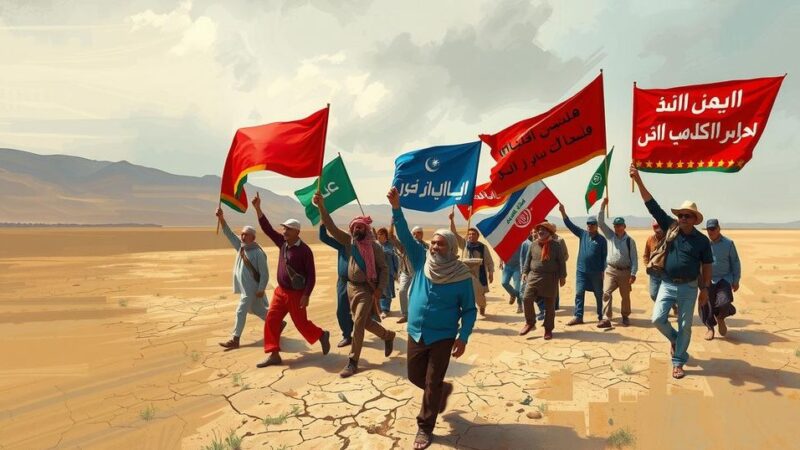The relationship between South Africa and the Trump administration has become increasingly strained, particularly following the expulsion of Ambassador Ebrahim Rasool. With accusations of ‘anti-Americanism’ and a focus on the plight of White farmers, the discourse reflects deeper racial and ideological divides. Trump’s recent actions, including cutting aid and critiquing land reforms, exacerbate tensions amid a shifting geopolitical context.
The tensions between the United States and South Africa have escalated, particularly with South African Ambassador Ebrahim Rasool being labeled a “persona non grata” by Senator Marco Rubio. This followed Rasool’s criticisms and long-standing diplomatic isolation from key figures within the U.S. government since President Trump took office. Rasool’s difficulties securing meetings highlight the strained relations, exacerbated by ideological differences over South Africa’s stance on Israel and its broader international position.
Rasool’s outspoken nature and South Africa’s pro-Palestinian policies have put the nation in conflict with the Trump administration. This was further exemplified when South Africa led a case at the International Court of Justice against Israel, prompting accusations of “anti-Americanism” and Rubio’s absence from a significant Group of 20 meeting chaired by South Africa.
The animosity towards South Africa extends beyond diplomatic rhetoric to cultural and racial tensions. The discourse among right-wing factions in the United States has portrayed the plight of White farmers in South Africa, aligning with nationalist narratives. Prominent figures from South Africa, such as Elon Musk, have echoed these sentiments despite court rulings against the validity of claims regarding ‘White genocide’.
President Trump has recently intensified his critiques of South Africa, reflected in his executive orders targeting land expropriation legislation. Critics note that White South Africans, despite being a minority, hold a disproportionate amount of land and wealth within the country. This portrayal of vulnerability among White farmers resonates with Trump’s base, tapping into broader fears among White populations in the U.S. about perceived cultural threats.
Observers point out that Trump’s rhetoric has revived local political debates in South Africa, galvanizing opposition against his administration. The U.S. decision to cut assistance has shifted public opinion against American influence, regardless of ethnicity. Many South Africans, including Afrikaners, express a preference to remain in their country rather than seek refuge elsewhere.
The evolving rift between the U.S. and South Africa is not solely a Trump-era phenomenon; it has deeper roots in disagreements over geopolitical alignments, especially regarding South Africa’s ties with Russia and China. Additionally, U.S. officials criticize South Africa’s inclusion of “diversity, equity, inclusion” principles in its G-20 agenda, deriding it as leftist.
In response to these tensions, Rasool emphasized that targeting South Africa is symptomatic of broader issues that include rising nationalism and trade wars, positioning South Africa as a crucial historical counter to supremacy ideologies.
The unfolding relationships between the United States and South Africa highlight significant ideological and racial divides, particularly under the Trump administration. Diplomatic friction is rooted not only in South Africa’s international policies but also in domestic narratives concerning race and land ownership. As the geopolitical landscape evolves, both nations must navigate these complex dynamics while recognizing the historical implications of their interactions. Ultimately, this situation calls for a nuanced understanding of both domestic and international motivations driving these tensions.
Original Source: www.washingtonpost.com






